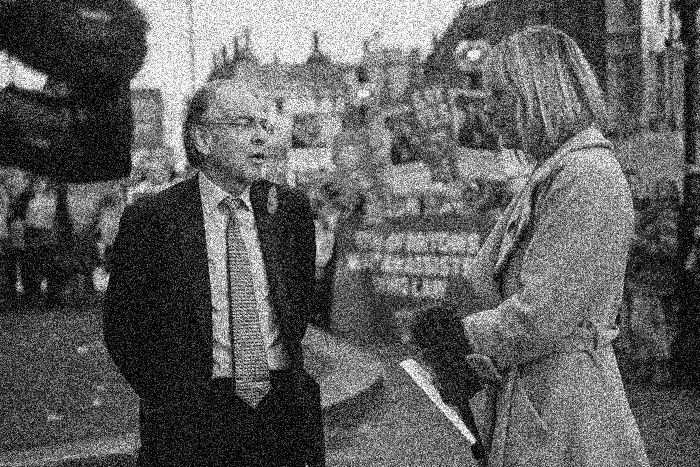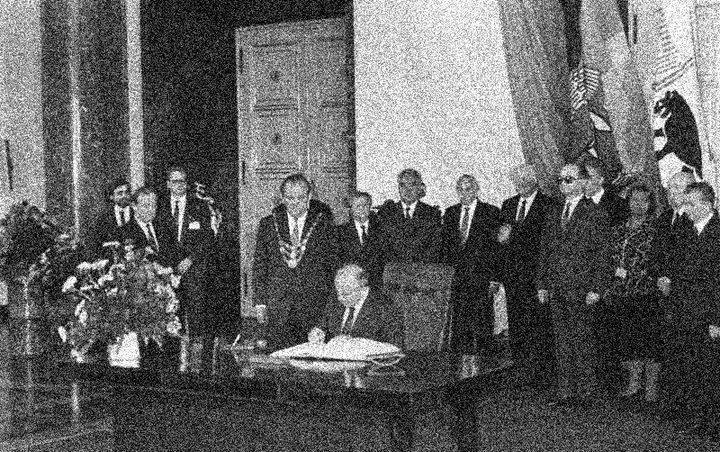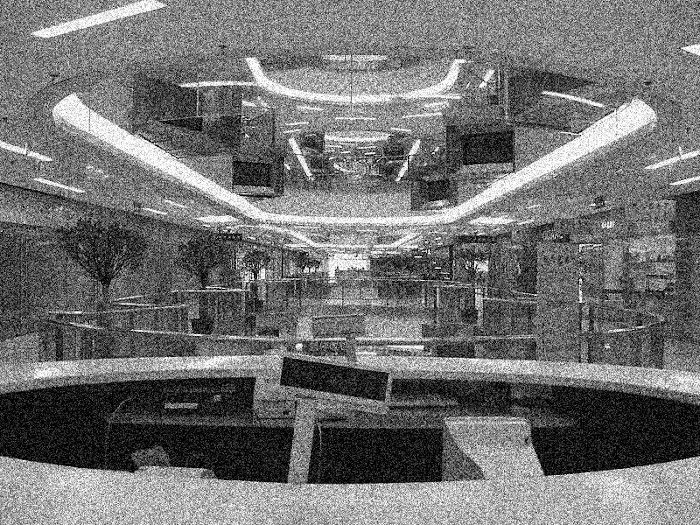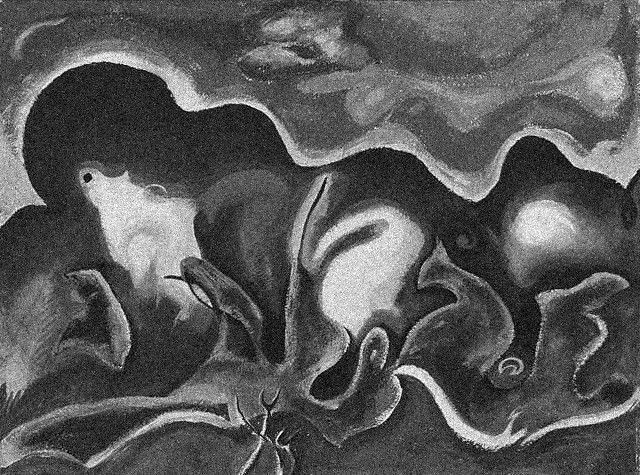Deepening the Void
The ruling class has found that “externalizing” their decision making to transnational organizations of various sorts can be a way to evade accountability. It is also a contradictory and self-undermining mode of governance.

What does the ruling class do when it rules? This was the question posed by Swedish sociologist Göran Therborn back in 1978. While many sociological analyses of the time concentrated on the ideas or interests of the ruling class, Therborn showed how these ideas and interests are perpetuated: namely, through a continuity of elite personnel. In short, the ruling class, when it rules, reproduces itself.
The question of who constitutes the ruling class has returned today, driven by the evident lack of legitimacy or direction that our ruling class displays. Contemporary analyses have returned to this theme by speaking about “managerial overclasses” (Michael Lind) and the “professional-managerial class” (Catherine Liu), highlighting the role of education in credentializing and reproducing elites. While these filtering mechanisms remain necessary to prevent too many people from entering the upper class, the period since Therborn’s analysis has seen a sea change in how the ruling class rules, at least in how that rule is mediated through the political sphere. Therborn was able to take for granted that the ruling class is constrained in the modern era of mass suffrage and democratic politics by the necessity of at least partly justifying its rule. The ruled, in other words, have some say in how the ruling class is able to rule.
As we argue in our new book, Taking Control: Sovereignty and Democracy After Brexit, the neoliberal transformation of politics and society has been premised on a changed relationship between rulers and ruled. In broad terms, in the thirty years following the Second World War, across western Europe rulers looked to draw legitimacy and policy direction from their claim to represent particular social interests. These social interests were translated into an ideological vision of the national interest articulated by competing political parties. However, as soon as this post-war class compromise was institutionalized, it started to decay internally through a process of mutual withdrawal: citizens started withdrawing into their private lives while the political class looked for ways to avoid the difficulties of being accountable to those they were ruling over. As this mutual withdrawal developed, a yawning void opened up at the core of political life, which had previously been filled by political parties, voting, and a whole range of civil society organizations.
Accordingly, as ruling classes started to embrace neoliberalism across the continent and beyond, the activity of governance was rationalized through reference to technical expertise and (often externally-imposed) unarguable economic imperatives. In time, this would form the basis of the technocratic forms of governance that dominated the “End of History” period. The hallmark of neoliberal governance of the post-political period was what the political scientist Colin Crouch understood as the depoliticization of public life—issues that were once contested between parties offering different visions of society were reframed as technical questions (which often had a single “best” solution). Politics was replaced by technocracy; when there is no alternative to the market, the only questions that remain are ones of the most efficient regulation of market behaviour, which are best answered by experts.
One of the clearest encapsulations of this view—core to the political project of New Labour—comes from Tony Blair’s constitutional reform minister, Lord Falconer. In his view, decision-making power should lie not with elected politicians but with agencies not under democratic control:
What governs our approach is a clear desire to place power … not with [elected] politicians but with those best fitted in different ways to deploy it. Interest rates are not set by politicians in the Treasury, but by the Bank of England. Minimum wages are not determined by the Department of Trade and Industry, but by the Low Pay Commission. Membership of the House of Lords will be determined not in Downing Street but in an independent Appointments Commission.
This approach to reorganizing state power has a key political effect: it both locks in a particular set of policy outcomes (through “independent” commissions and expert groups) while allowing the political class to evade responsibility for governing. If the experts recommend a specific course of action, who could reasonably hold politicians responsible for the consequences of doing just that? Elected politicians have, in other words, responded to the legitimacy challenges of the political void by choosing to make themselves more powerless; they are then able to position themselves as powerless to change things and so to escape the demands and complaints of citizens while retaining their social position, status, profile, and salary.
If this story is relatively familiar, one of the more overlooked aspects of this neoliberal approach to governance concerns its international or transnational dimension. While this transnational aspect is present across the globe, its clearest expression is found in Europe. National elites, in particular from the 1990s onwards, increasingly turned to European integration as a way to rule over the political voids that they were actively creating at home. The pinnacle of this depoliticization of politics is to be found in the European Union (EU). But this is not because of the EU’s widely-accepted “democratic deficit” but precisely because of the actions of ruling classes at the domestic level. The EU is best understood not as a budding superstate or social saviour, but as a projection and embodiment of what domestic ruling classes do: look to rule without having to engage with the ruled.
In short, as we argue in Taking Control, the ruling class has found that “externalizing” their decision making—at least as it relates to politics—to transnational organizations of various sorts can be a way to evade accountability. In this context we see the defining characteristic of how the ruling class rules under neoliberalism: dispensing with any pretence of democratic representation, it aims to govern without the people. It is thus both a response to, and a cause of the deepening of, the political void.
Ultimately, this method of rule is contradictory and self-undermining. The slow-motion legitimacy crises that advanced capitalist nations seem all to be suffering—or the “polycrisis” that affects world society—have their basis in a mode of rule that seeks to undermine its own basis in constitutive relations with the ruled.
George Hoare’s latest book is Taking Control: Sovereignty and Democracy After Brexit, written with Philip Cunliffe, Lee Jones, and Peter Ramsay.



